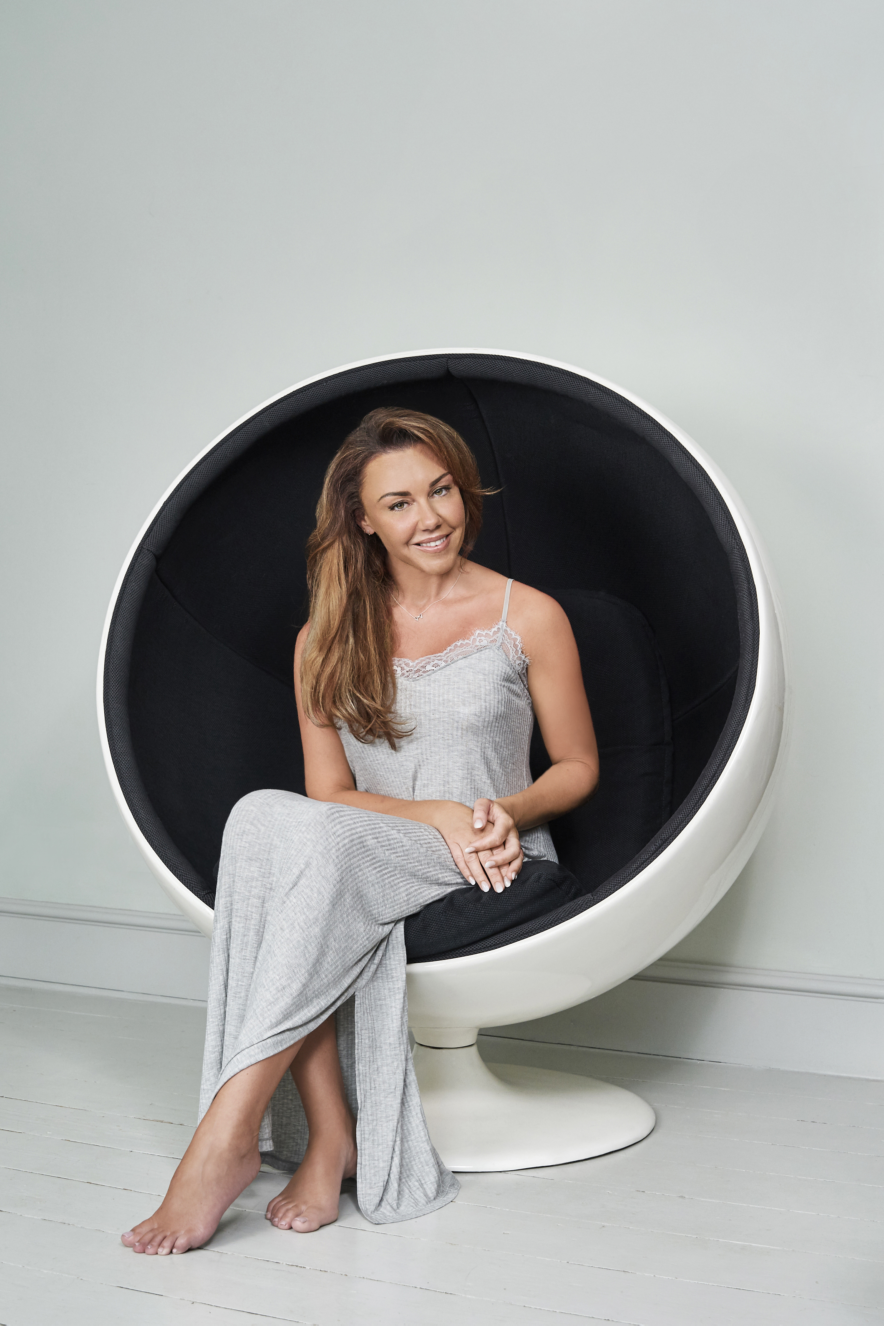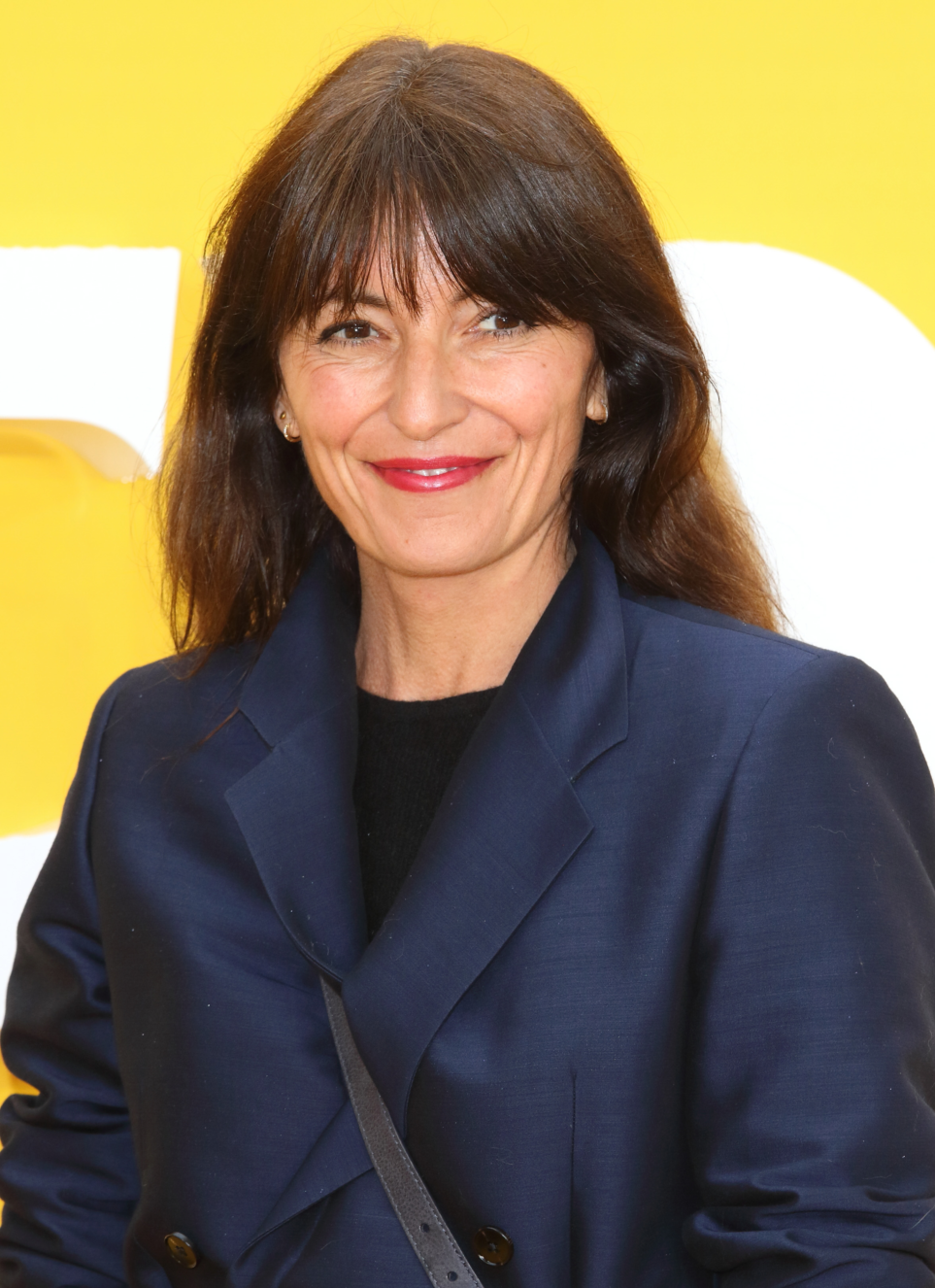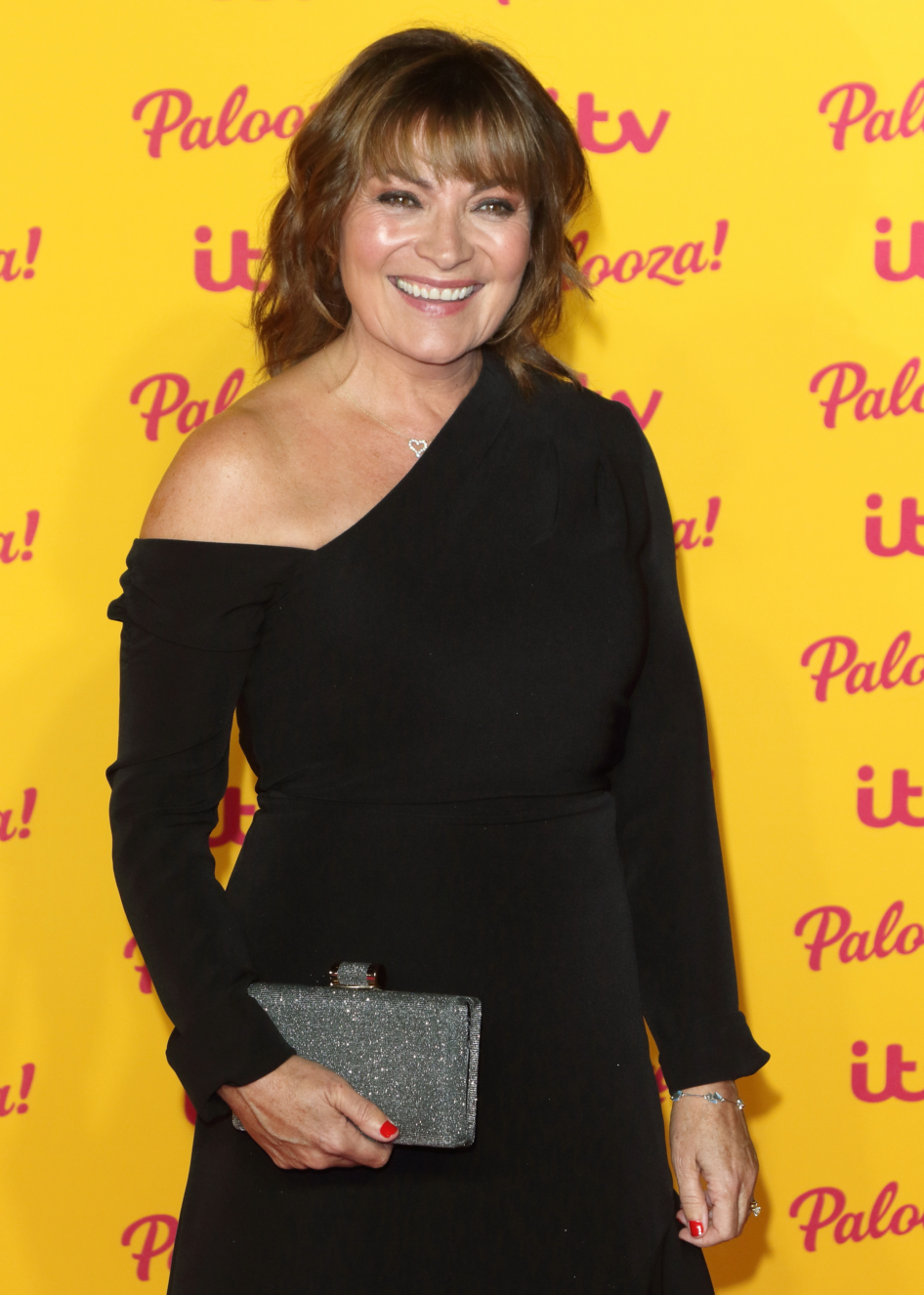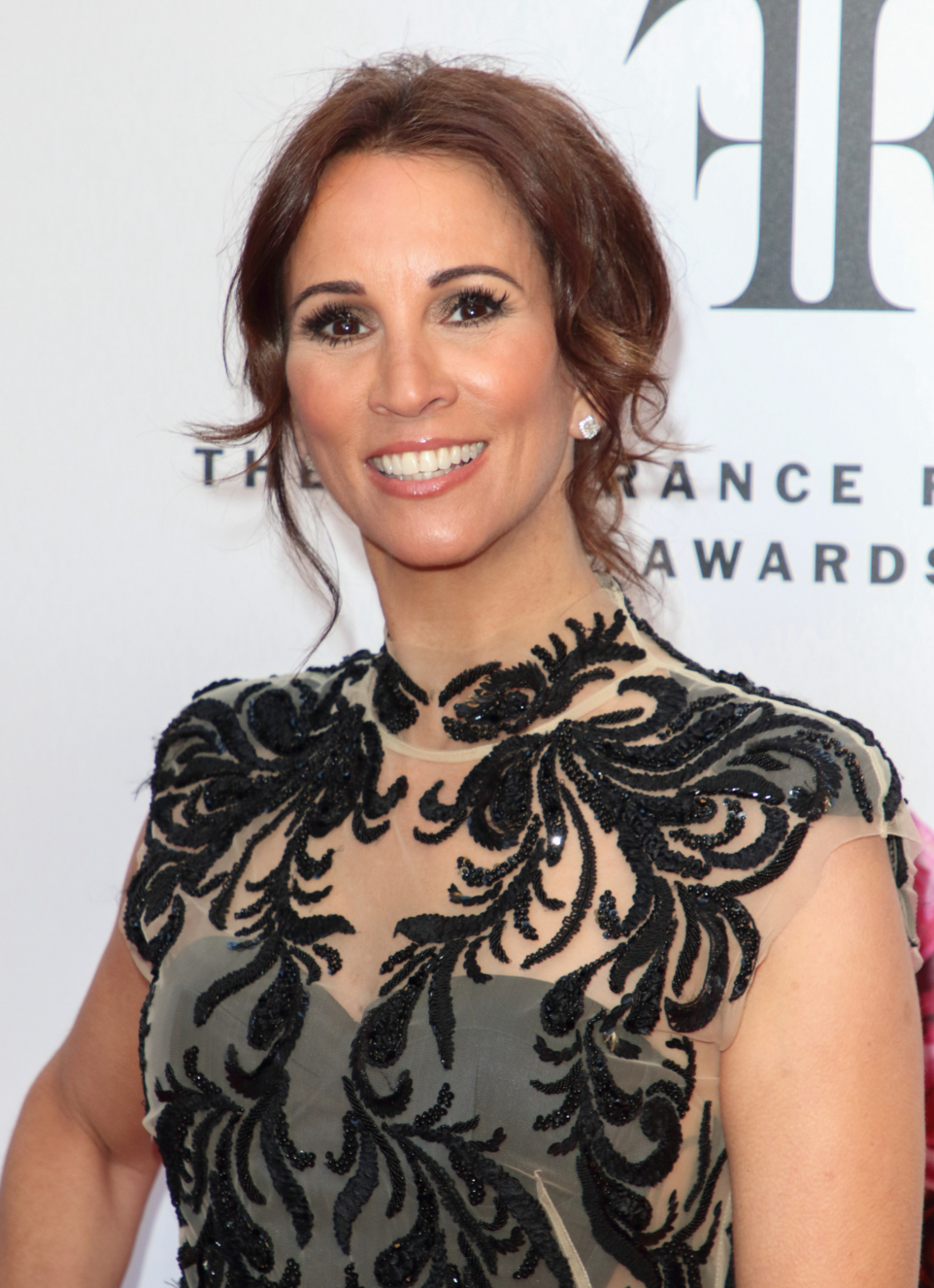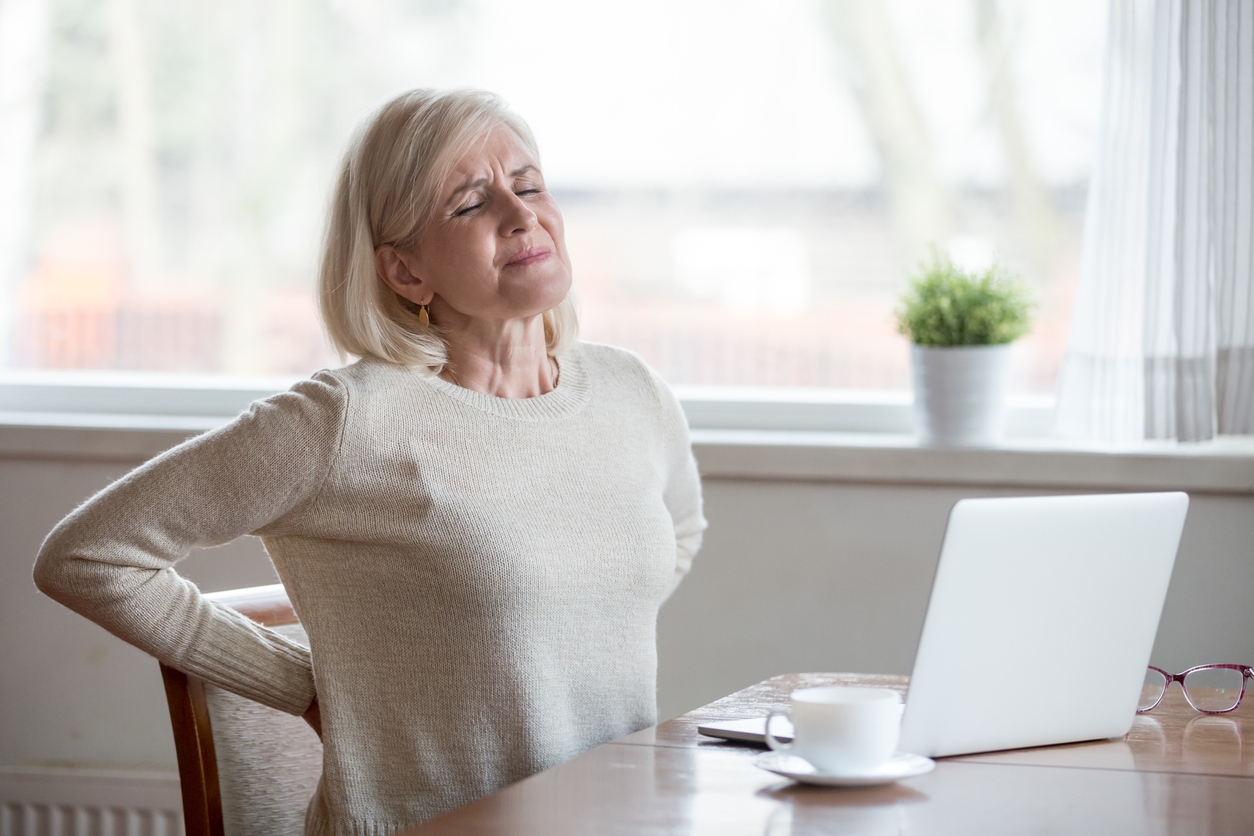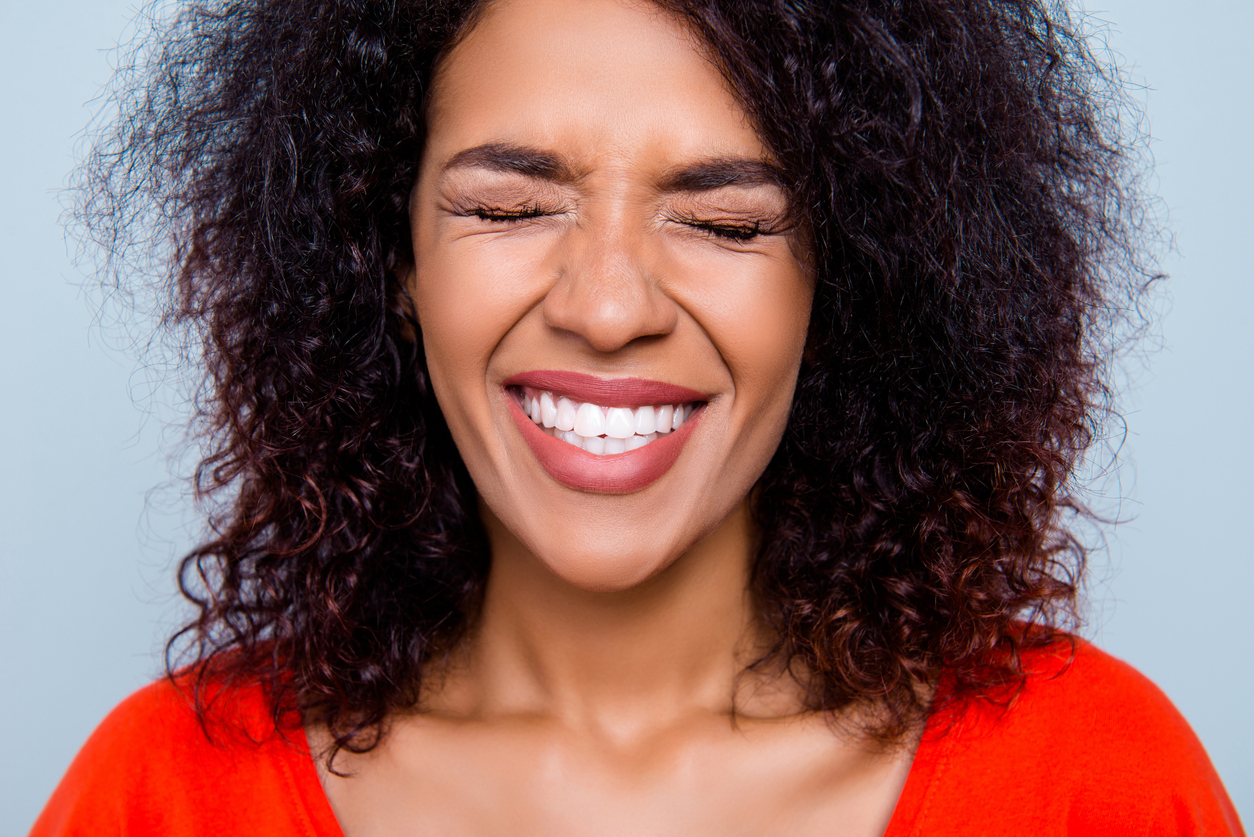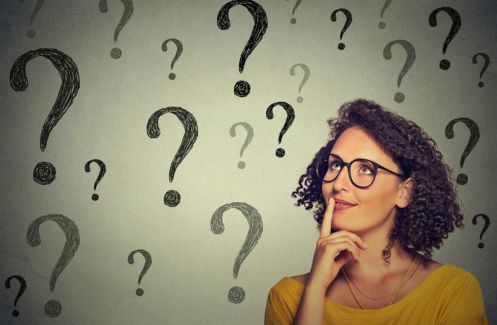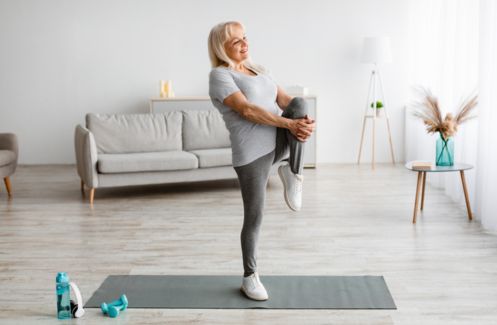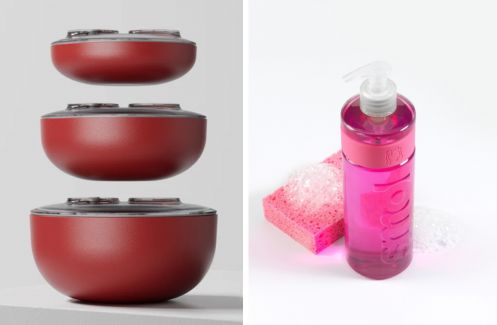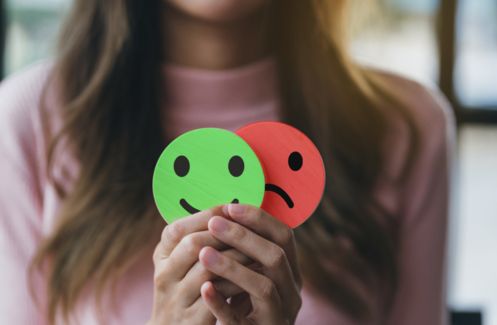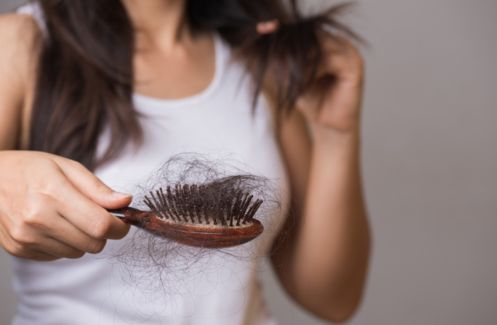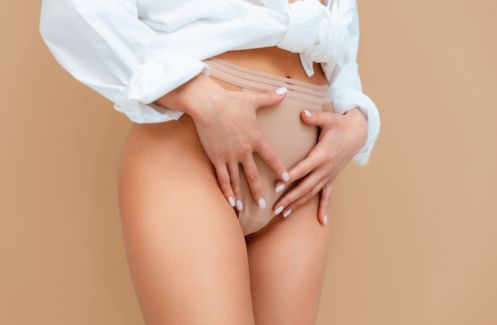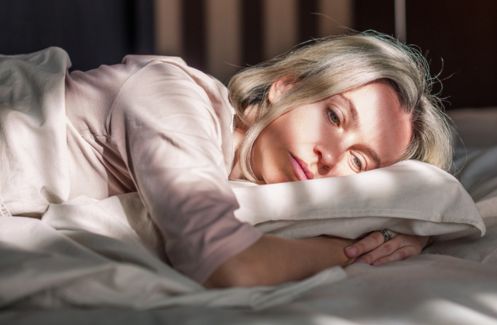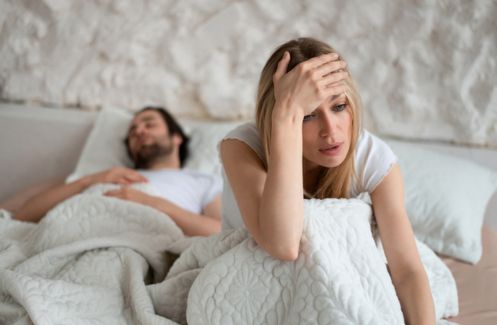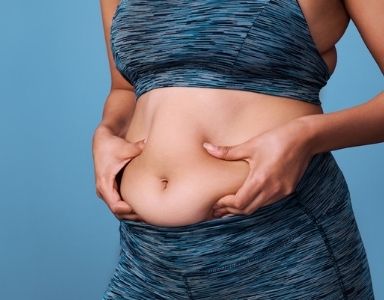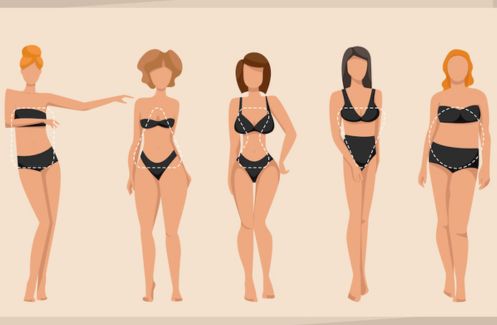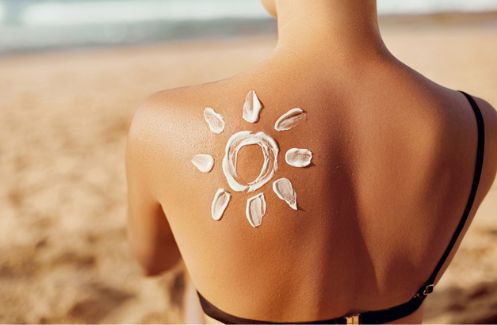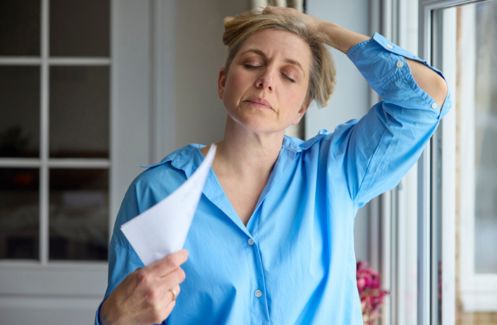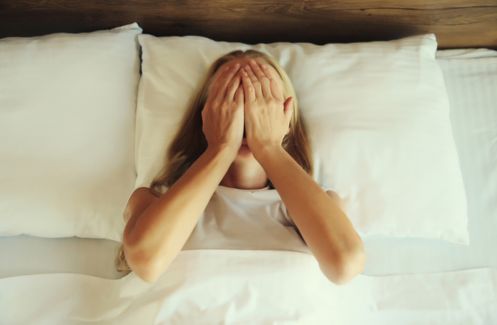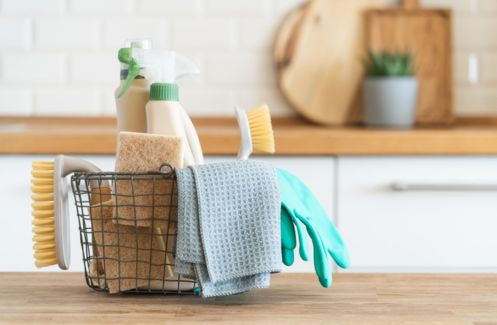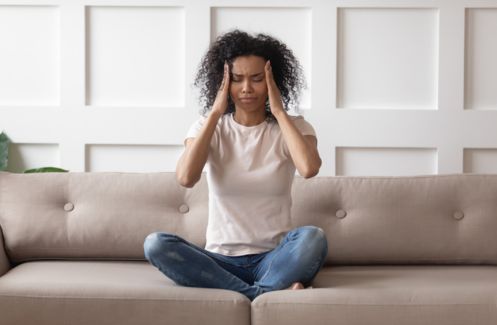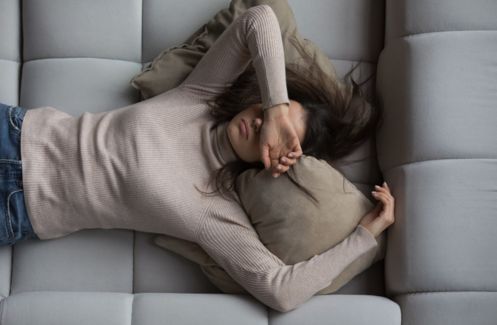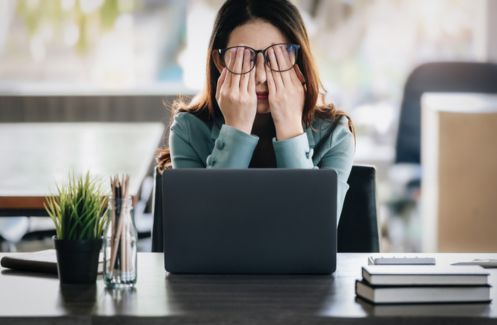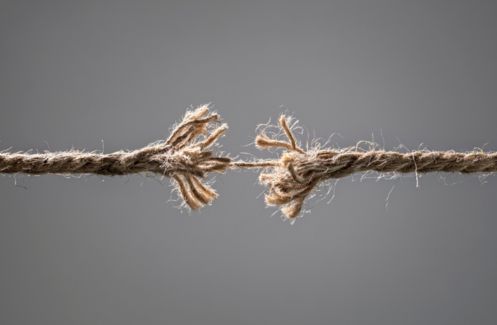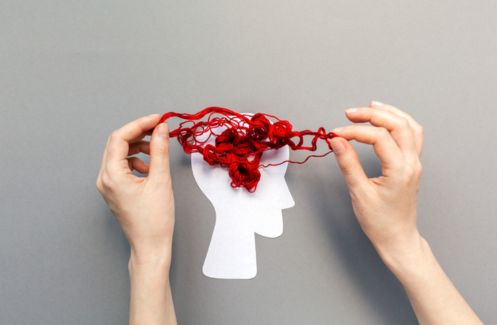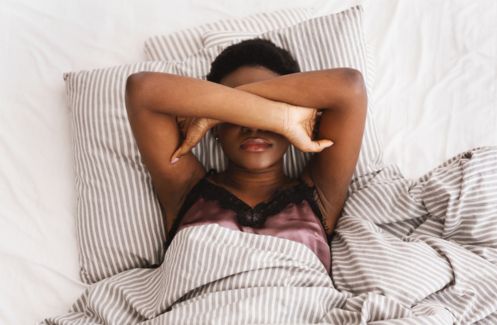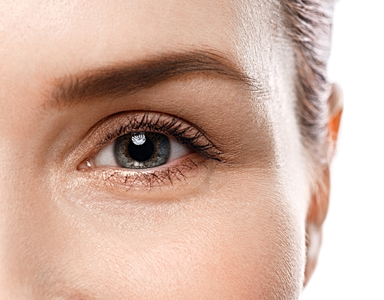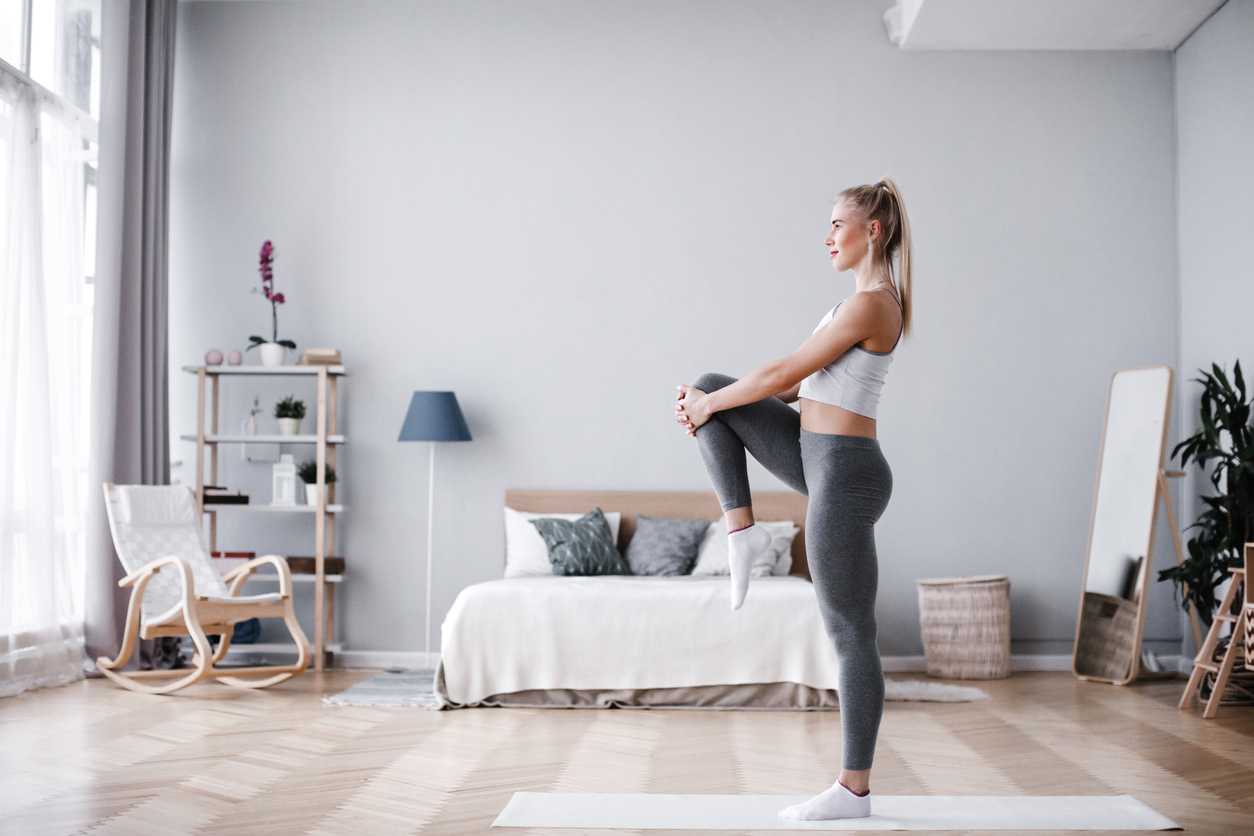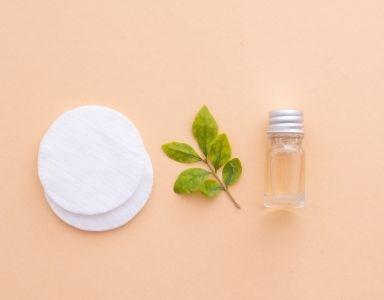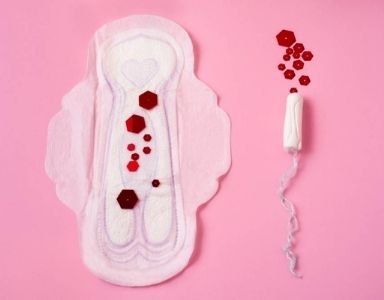Menopause symptoms are not only about hot flushes. As more celebs talk about the taboo effects such as vaginal looseness and incontinence, we salute them
It’s simply the time in a woman’s life when her ovaries stop producing hormones. Yet for years, the menopause been shrouded in secrecy and taboo. Until recently, women daren’t talk about going through it for fear they would be considered somehow ‘passed it’.
But now and perhaps ironically, for something that was euphemistically called The Change for so long, attitudes have indeed changed.
Leading the way is an army of celebrities, from singers to entrepreneurs, A-listers to TV presenters, coming together to talk about their menopause; educating the rest of us about something that is about so much more than hot flushes
Michelle Heaton
The pop star and mum of two went through menopause at 35, after having a hysterectomy operation in 2015.
And while Heaton became an advocate for menopause in the years to follow, she has never revealed he extent of the vaginal changes she experienced after menopause. Until now.
‘Loss of periods, leaks, incontinence – women often don’t feel confident to talk about menopause freely,’ Heaton says.
‘One third of women will experience incontinence in their lifetimes,’ she revealed, in an interview with Healthista. ‘I’m one of them.’
Now 40, Heaton has revealed the devastating extent of her symptoms, which included low sex drive, vaginal looseness and incontinence as part of the ‘Own Your Confidence’ campaign, run by Silk ‘n’ Tightra £309 from Currentbody.com, a new device that has been shown to tighten and rejuvenate the vagina in four weeks.
See Michelle talking about her experience with the Silk ‘n Tightra device in the video above.
During the menopause, when hormone levels decline, the dramatic reduction in the hormone oestrogen not only leads to vaginal dryness but also to slackness in the vaginal area and a weaker pelvic floor.
This – as it did in Heaton’s case – can lead to less satisfying, more painful sex as well as urinary leaks and incontinence. This is because oestrogen plays a key role in the production of collagen, which is necessary for vaginal tightness.
‘People don’t talk about the menopause enough and it was hard to know what was happening in my body,’ she revealed.
‘After childbirth and during menopause, vaginal changes affect women. That’s just nature,’ she said.
‘Loss of sensation and loss of urinary control is totally normal and women need to know they’re not alone. Devices like Silk ‘n Tightra can reverse these symptoms in just four weeks.
‘I’ve had a lot of experience in this area and there wasn’t much out there in terms of advice and solutions when I started going through this.
‘Droopy labia, pain during sex, vaginal dryness and urinary leaks from weakening of the pelvic floor muscles – I have had all of them. They’re symptoms that can really reduce a woman’s confidence.
‘I would encourage any woman to use Silk ‘n Tightra, it worked for me.’
So, what difference did it make to her sex life?
‘I lost a lot of confidence going through early menopause, I feel like I lost a bit of myself, not wanting people near me, including my husband,’ she reveals.
‘Sex is an important and intimate part of my relationship. I have been through reconstructive surgery (in 2012) and hysterectomy and of course that impacted my sex life!
‘Having children and going through the menopause affects vaginal sensitivity and there is also a difference in how your vagina looks.
‘But coming though the other side, my husband has noticed a difference in how I look and feel.
‘I saw results like less dryness, no pain during sex and stronger vaginal muscles so a better experience for me and my partner.’
Click here to find out more about the Silk ‘n Tightra device.
Kim Cattrall
Back in 2013, the actress kicked off the conversation. ‘Literally one moment you’re fine and then the next, you feel like you’re in a vat of boiling water and the rug has been lifted from under you.’
Cattrall, now 63 played the sexy Samantha Jones in Sex and The City, a character who goes through menopause too.
She later became a poster girl for menopause with her TV show Sensitive Skin, perhaps paving the way for an army of celebs behind her.
‘I’m trying to turn it into a very positive thing for myself, which it has been, in the sense of acceptance and tolerance and education about this time of life.’
Gwyneth Paltrow
‘Menopause gets a really bad rap,’ Gwyneth Paltrow has said, whilst discussing her own perimenopause (the decade leading up to menopause when symptoms tend to start) in a video for her website GOOP. ‘I don’t think we have in our society an example of an aspirational menopausal woman.
‘I can feel the hormonal shifts happening,’ the 46 year old continued, saying she is determined to ‘rebrand’ the menopause. ‘The sweating, the moods – you’re just all of a sudden furious for no reason.
At 37, Paltrow was diagnosed with osteopaenia, a condition associated with weakened bones that can precede osteoporosis, the risk of which increases after menopause.
Liz Earle
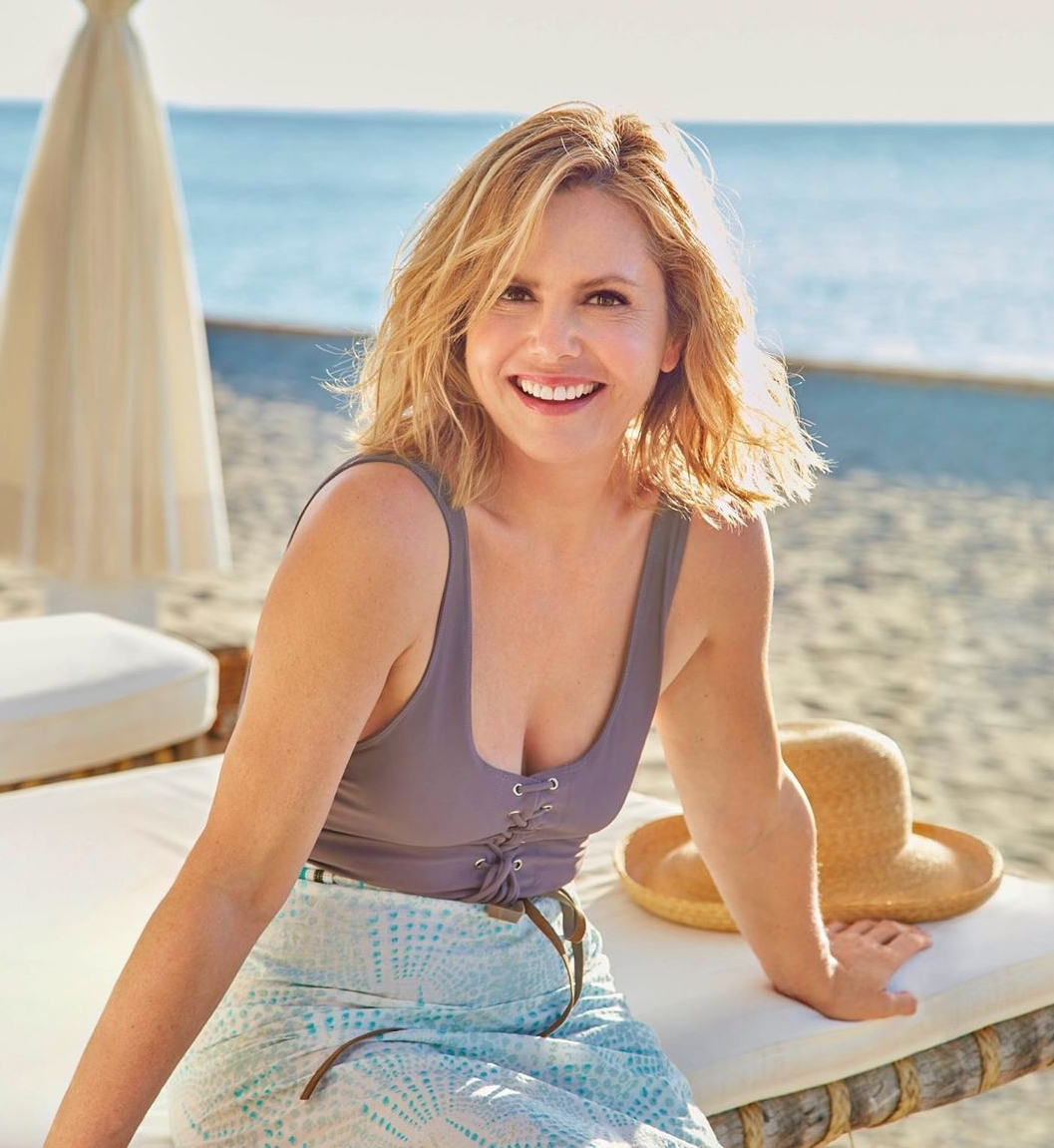
The wellbeing expert and beauty entrepreneur also wants to reframe the conversation around menopause.
But while Earle expected hot flushes and night sweats, she instead got sleeplessness, headaches and even tinnitus – all of which are lesser known symptoms associated with menopause.
‘I used to get a light drumming sound in my ears, which I thought I’d have to live with,’ said Earle, who is now the editor of her own magazine, Liz Earle Wellbeing, published by Hearst.
‘I now know that we have oestrogen receptors all over our bodies, including in our inner ear.
‘I have friends who’ve gone to audiology clinics and specialists, and nobody has ever said to them, “Oh, you’re a midlife woman, clearly you should try some oestrogen because that may well help your tinnitus.”’
In order to help dispel some of what Earle believes are misconceptions surrounding menopause and Hormone Replacement Therapy (HRT) Earle has written an in depth book called The Good Menopause Guide as we all a HRT-focused e-book called The Truth about HRT available for download for £4.99 from her website.
Meg Mathews
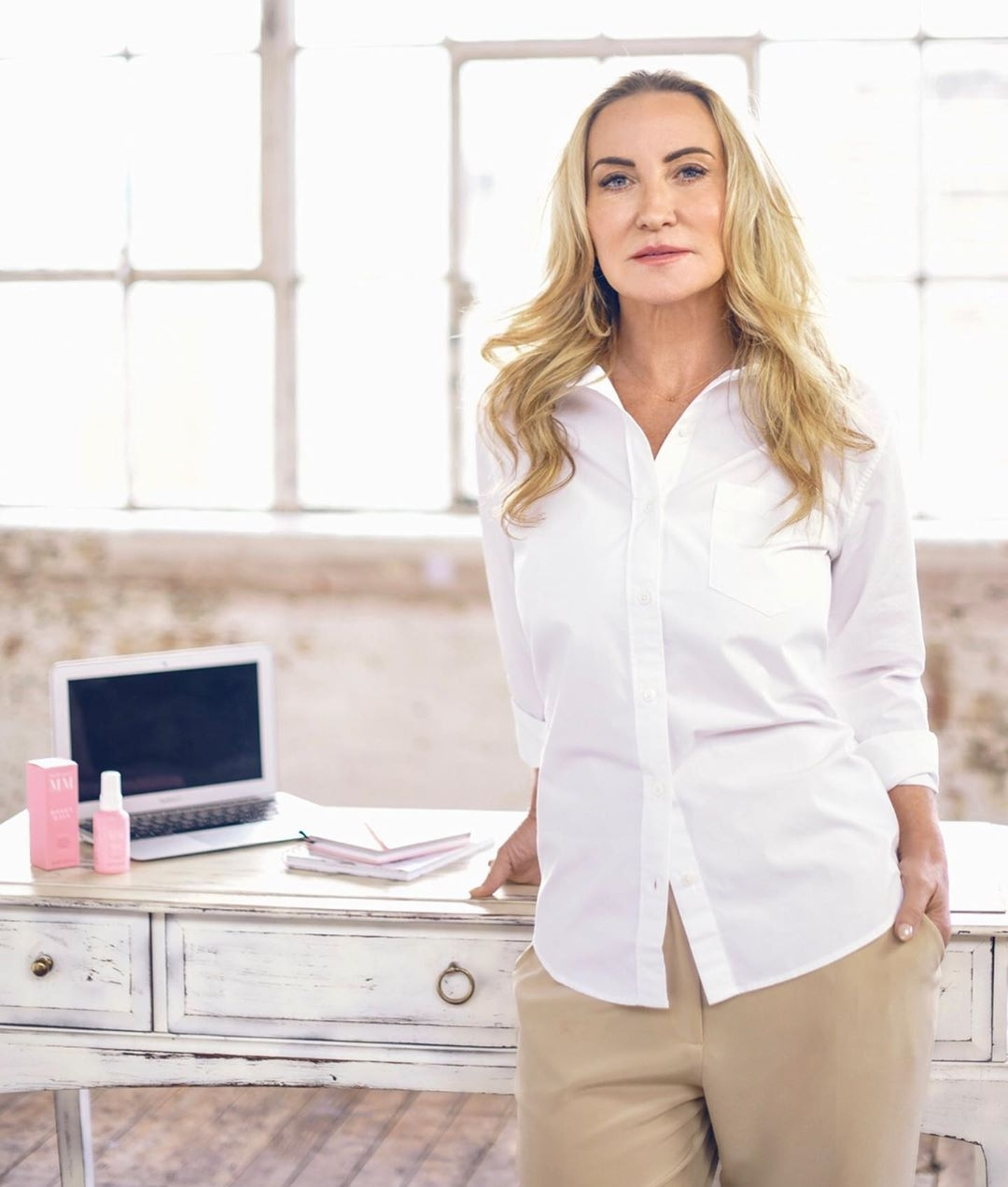
There are actually 34 symptoms of menopause, the former party girl Mathews, 53, has said. ‘I had 32, but because all I could find about it online was hot flushes, I didn’t know what was happening.’
‘I didn’t get a hot flush,’ she said. ‘For me it was anxiety and worry.
‘It was horrific…I didn’t leave the house for three months. I had the worst anxiety. Nobody was talking about the mental health part.
‘So I started talking to friends about how I was feeling and it turns out all my friends around the same age were feeling the same – everyone started opening up about their menopause symptoms.’
In order to bridge the gap between women and education about menopause, Mathews launched megsmenopause.com, in 2017, a website that talks openly about Mathews’ experience as well as symptoms (all of them) and how lifestyle can help.
‘I had a launch party and was a bit nervous,’ she said. ‘Five years ago, people wouldn’t be seen dead somewhere like that, but Lorraine Kelly sent a TV crew and Tamara Beckwith and Davinia Taylor came.’
Within six months, the site had had a million fits. ‘I wanted to take the taboo away. Every single woman in the world is going to go through it so why should there be any shame?’
Mathews has also talked about vaginal dryness, lack of libido, and using masturbation to keep ‘a spring in your step,’ during the menopause.
In March last year, the former Britpop manager launched a ground-breaking range of intimate beauty products designed specifically for women in the lead up to menopause and beyond.
These include Motion Lotion, moisturising vaginal lubricants that come with either oil or water bases, Blossom Balm, an intimate skin moisturiser uniquely formulated to reduce vaginal dryness and Rosey Rain, a cooling spray, this time for the face. They’re all available in Boots.
Davina McCall
McCall has also been open about talking about the menopause.
‘I don’t mind talking about the menopause because it’s something that every woman goes through,’ said the star, who turns 52 this month of her menopause at 50.
‘Women are embarrassed to talk about it. They feel ‘less than’ and they shouldn’t do. I certainly don’t. F**k that!
‘I didn’t have anyone in the public eye talking about it when I started hitting it. People think it’s something that happens in your 50s, but it didn’t for me. I got the perimenopause, which is the pre-menopause, at 44, which is quite young.
‘I felt embarrassed and like I was really unattractive. I also felt unfeminine and old. And actually I’m here to say that you can get through it.
‘Actually, the next phase of your life is really exciting. You start thinking, “OK, now is my time. My God, I’ve raised a family and now I can start thinking about where I want to be in the next period of my life’
Lorraine Kelly
TV host Lorraine has spoken about her difficult experience with the menopause, which left her feeling ‘flat’.
‘We were in Spain, and I couldn’t understand why I felt flat,’ says the TV host.
‘I mean really flat. There was no reason for it. I wasn’t depressed exactly, but there was a sense of not seeing the joy in anything. I’d lost my mojo.
‘It’s like when you’re pregnant and you find yourself sobbing at adverts. And I was tired. I mean, bone-tired. I couldn’t understand it,’ she said.
‘Women need to talk about it, and not just sit at home wondering what’s wrong with them, getting depressed. It’s natural!’
Andrea McClean
Popular daytime television presenter Andrea McLean has a lot to say about the menopause. Why? ‘The main reason for my passion of speaking about menopause is because nobody wants to talk about it,’ explains McLean, who presents ITV’s Loose Women.
‘I understand why no one wants to be associated with something society has decided makes you officially old, knackered, past it, useless and pretty much a laughing stock,’ says McLean. ‘But why does society still use the menopause as a barometer to measure a woman’s usefulness and status in society?’
McLean, has openly spoken about her menopausal symptoms, aged 47, live on air during Loose Women and also came to Healthista HQ and did a video about them for our readers – see below.
Now, a couple of years later aged 49, McLean explains in her book, Confessions of a Menopausal Woman, that thousands of women had sent her messages explaining that they too were desperate for some help and support on entering the menopause.
‘Like anything, each one of us will experience the build-up to the menopause in our own unique way, and there are a whole host of symptoms and experiences that come under the umbrella term of menopause,’ says McLean.
What to look out for
What are the symptoms? Well, the obvious ones are hot flushes, sleepless nights, erratic periods, brain fog, mood change, anxiety, depression, exhaustion, itchy skin, migraine, aching joints.
But, in fact, there are 34 symptoms of being menopausal – either peri- (which is the build-up) or the full blown menopause. They are:
- Allergies (if you have any they will be stronger than usual)
- Anxiety and stress
- Bladder incontinence
- Bleeding gums
- Bloating
- Breast tenderness
- Brittle nails
- Body odour changes
- Burning tongue or dry mouth
- Depression
- Difficulty concentrating
- Dizziness
- Electric shocks (tingling sensation under skin)
- Gastrointestinal problems (gas, cramping, nausea)
- Hot flushes
- Hair changes (facial hair increase, thinning hair)
- Headaches
- Irregular menstrual cycle
- Irregular, pounding heartbeat
- Irritability
- Itchy skin
- Joint pain
- Loss of libido
- Memory lapses
- Mood swings
- Muscle tension
- Night sweats
- Osteoporosis (weakening of the bones)
- Overwhelming fatigue
- Panic attacks
- Sleep disorders
- Tingling extremities
- Vaginal dryness
- Weight gain
‘And you may have every single one of them or just a couple of them, but that doesn’t mean that you’re not menopausal,’ says McLean. ‘It just means your experience is different to the next woman, not less’.
Even if you only experience a handful of them you may be going through the menopause, and just because you may not be experiencing the symptoms that are typical for the menopause it doesn’t mean that your body hasn’t started to change, explains McLean.
‘Make a note of your symptoms and head over to your doctor so that you can begin the process of doing something about it and feeling better’.
5 ways to have a better menopause
Firstly, speak to your doctor about your symptoms as you might be a candidate for Hormone Replacement Therapy (HRT). But there are some other ways to help yourself
Take care of your bones
In fact, bone loss is a huge issue for women going through the menopause as the decline in oestrogen levels, lead to a decrease in bone mass, increasing the risk of osteoporosis.
‘This is because of the protective effect oestrogen has on bones’, says Chris Speed, a nutritional scientist and dietitian.
‘As well as this, the declining oestrogen levels can also lead to an increased risk of heart disease, heart attacks and strokes.
‘Supplementing with vitamin K2 can help these health issues by redistributing calcium from the arteries into the bones, making arteries more flexible and bones stronger’.
Try Nature’s Aid OsteoAdvance with MenaQ7 £10.95 which contains vitamin K2, calcium, magnesium and zinc as well as vitamin D3, an essential combination for menopausal women.
Get – and stay – active
The two most important effects of menopause on your long-term health are weakening bone mineral density and the loss of the cardio protective effects of oestrogen, which can increase your risk of heart disease.
Exercise can impact on both of those factors, particularly load-bearing cardiovascular exercise such as walking or jogging, with a couple of sessions of circuit training that gets you sweaty with some weights such as Body Pump classes.
Indeed, doing resistance training just twice a week has been shown to help strengthen bones. In fact, a 2017 study on 101 women who had their bone density measured before and after an eight week exercise intervention found that just 30 minutes twice weekly of circuit training helped strengthen bones.
Take extra care of your teeth
As oestrogen levels fall during menopause, women become more vulnerable to numerous health issues, including loss of bone mineral density which can lead to osteoporosis (see above).
Around the same time, changes in oral health also are common as teeth and gums become more susceptible to disease, which can lead to inflammation, pain, bleeding, and eventually loose or missing teeth.
It’s essential that you take extra good care of your teeth during the menopause and beyond, which includes flossing twice daily.
We love interdental sticks Dentek Floss Picks £2.99 from Superdrug that make flossing so much easier, as well as the Waterpik WaterFlosser Cordless Plus £54.99 from Boots which comes with a tongue scraper, and fittings for implants and braces – it’s amazing.
Eat a low sugar, low GI diet
Some of your typical menopausal symptoms are down to increased insulin sensitivity in your muscle cells during menopause.
As oestrogen levels start to fall, our muscle cells become less sensitive to blood glucose changes, leading to insulin resistance.
This reduction in oestrogen also encourages an increase in appetite, especially for sweet and carbohydrate rich foods.
It’s also possible for gut problems such as irritable bowel syndrome (IBS), indigestion and acid reflux to also be worse during the lead up to menopause because of the action of oestrogen on gut function.
For a tasty way to boost gut bacteria, we are loving the new dairy free probiotic drink Biomel £1.20 from Sainsbury’s – the dark chocolate is delicious.
Choose foods that have a lower impact on blood glucose levels, smaller portions of starchy and wholegrain carbohydrates such as sweet potatoes, wholegrain rice and quinoa and a healthy source of fat such as avocados, olives, olive oil or nuts or seeds and a source of protein such as meat, fish, eggs, lentils, beans, pulses or tofu at each meal.
Get a hold on excess hair
One of the least welcome symptoms of menopause can be thinning hair on our heads, but more hair growing in unwanted places such as around our nipples, upper lips and chins. Lovely stuff.
If you’re worried spiky regrowth from waxing or shaving, try Jolen Crème Bleach £4.50 from Waitrose and other supermarkets and pharmacies.
If the problem is severe, your doctor can prescribe a hair growth retarding cream on prescription.
October is World Menopause Awareness Month
Relevant Healthista Content
Menopause: 5 things this TV superstar wants you to know
Menopause symptoms making you miserable? These natural fixes will help
Why fish oil could ease your menopause and 9 other lifestyle changes to make right now
Menopause help special: 10 symptoms and how to fix them naturally
Healthista Content You Might Like
4 ways stress is showing on your skin and exactly how to cope
5 fat loss supplements proven by science
7 celebrities you didn’t know had eczema
4 healthy recipes from the new Wagamama cookbook
Like this article? Sign up to our newsletter to get more articles like this delivered straight to your inbox.



